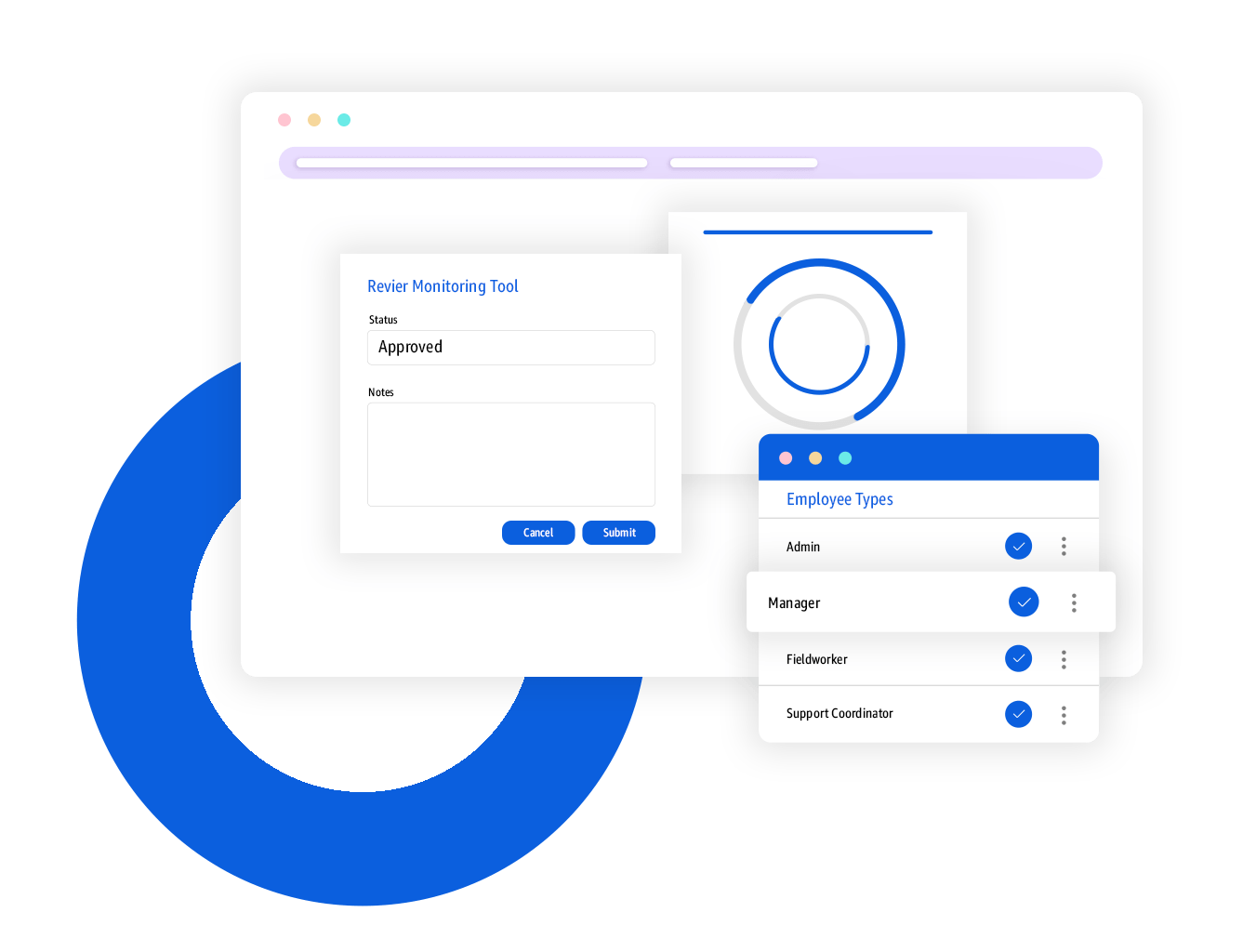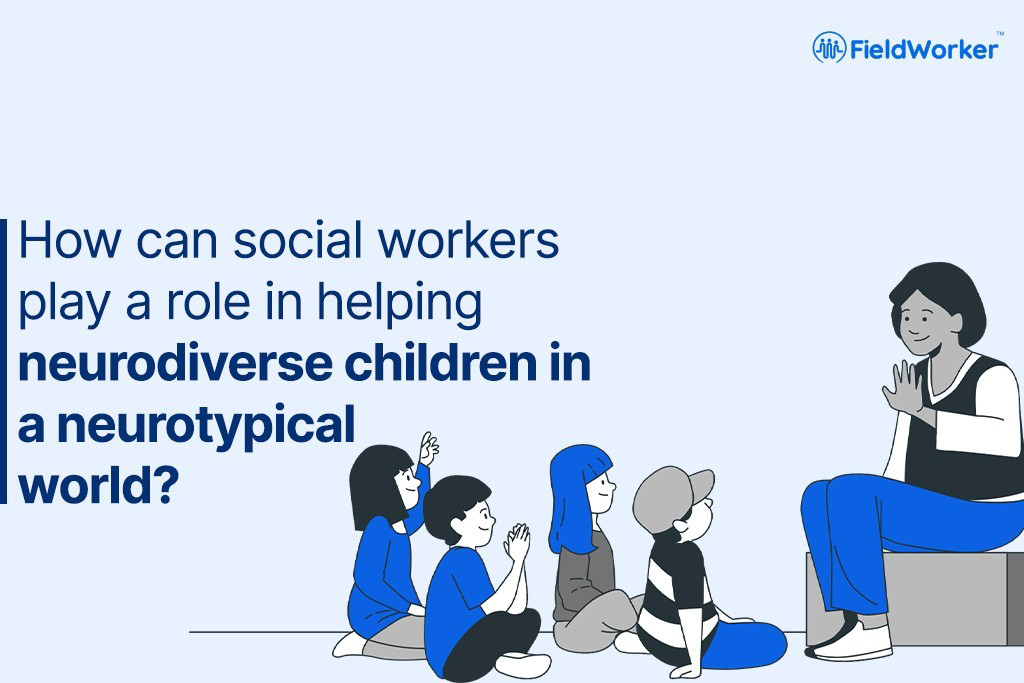The pandemic has had an impact on people physically as well as mentally. In the past two years in the US, most of a child’s education has consisted of video conferencing and emails rather than group lessons or offline classes, which has frustrated parents and kids.
1,000 parents of children under 18 participated in a survey to learn about the stressors they are dealing with this school year. According to the study, parents are under unheard-of pressure to help their kids succeed academically this year. Neurotypical kids need some time to adjust to these changes, particularly sensitive school-aged children, those with developmental delays, and neurodiverse children might require more time and assistance to adjust. For them, change and uncertainty can be difficult. Frequently diverging from school routines and a back-to-school season can present a unique set of challenges.
Social workers can create a great impact in such a situation for these children. Let us see how.
The impact social workers can create:
Since the middle of the 20th century, when people started to leave the isolation of institutional settings and enter the community, services for and attitudes toward people with intellectual disabilities have advanced significantly. Still, there is a lot of work to be done in the areas of inclusion, healthcare, and poverty. To ensure that social workers consider and include people with intellectual disabilities (children as well), interdisciplinary practice and training are essential.
- Today, a social worker’s role primarily focuses on helping students with their mental health needs, determining their needs, and creating intervention plans for them so they can receive special education services in a welcoming environment.
- Every factor that might impede or have an impact on a child’s education must be taken into account in inclusive education. Building a barrier-free school with modern infrastructure is not sufficient to declare it an inclusive institution; understanding individual differences is of utmost importance.
- Professional social workers are equipped with the knowledge and abilities necessary to work with children who have neurodiversity and to foster communication between their home and the community to ensure inclusive educational practices at the school.
- Research has proved the effectiveness of social worker-mediated interventions in promoting the developmental skills of neurodiverse kids or kids with developmental disabilities.
Let us, deep dive, into how a social worker can make a difference:
Assessment:
The needs assessment of neurodiverse children in order to plan an early intervention is one of a social worker’s most essential responsibilities in ensuring inclusive education. Social workers facilitate assessment by establishing connections between various systems and service providers. Creating intervention plans to meet the needs of children with disabilities involves a thorough process.
By conducting the proper need assessments and connecting them with the appropriate resources, they offer evidence-based interventions for kids and families in order to achieve the objective of inclusive education in society.
Education:
People with learning disabilities have a significantly reduced capacity to understand complex or novel material and struggle to pick up new skills. People with learning disabilities may also have diminished independence. These symptoms usually first appear in childhood and have a long-term impact on a person’s development.
Children spend a large portion of their time in school, so their learning environment must allow them to advance academically, socially, and emotionally. Social workers can be extremely important in ensuring that this environment is provided for all children, including those with neurodiversity.
The development of an Individualized Education Plan (IEP) catered to the child’s educational requirements may receive assistance from the children’s disability social worker. This IEP is a legal document that describes the student’s preferred method of learning and offers suggestions for the most effective ways that teachers and service providers can use to support the student’s education.
To diagnose the student, they carry out social developmental studies through classroom observations and screening. A special education program is implemented if the child satisfies specific requirements.
Social workers evaluate the client, look into local services, and recommend initiatives that will be advantageous to the person, just like other social workers do. They assess the programs’ efficacy and adjust as necessary.
Children with learning disabilities, as was previously mentioned, receive an IEP that outlines their current level of performance, establishes educational goals for them, describes the special education services the school will offer, and outlines the modifications the school will make on their behalf. The social worker for learning disabilities may advocate for the child and participate in the development of the IEP.
Home Visits:
Home visits are beneficial when working with neurodiverse kids. By visiting the child’s home and speaking with the parents/guardians to gain insight into the child’s environment outside of the educational institution, social workers can use home visits to understand them better.
Mediation:
Linkages between various systems that have an impact on the child are made through mediation. The child and their social environment, which includes parents, siblings, peers, friends, teachers, etc., are the parties involved in the mediation process. A professional social worker can perform mediation effectively and ensure proper communication between the home, school, and community to bring about positive change overall. However, it definitely requires specialized knowledge and skills.
Counseling:
To help these kids, counseling is crucial, which is where a social worker comes in. One of the most critical responsibilities of a school social worker is counseling.
Social workers who specialize in working with neurodiverse children also teach parents how to advocate for their kids effectively and where to find the specialized services that will help them raise them as independently of an adult.
Awareness:
Social workers can spread knowledge among parents and local communities about the constitutional laws passed with provisions for neurodiverse children. Education can lead to change in the way that people view these children. How?
-Include information on the disability rights movement in the content on social activities and systemic oppression.
-Include neurodiversity in classroom discussions and content on diversity, ethics, and pressure.
-Attend professional development or training on neurodiversity to ensure that the support is ableist-free and culturally appropriate. As a result, social workers are tasked with assisting people in maintaining access to their rights rather than just reacting to or meeting an immediate need.
Multi-disciplinary approach:
Social workers have typically collaborated with experts from other fields to understand people and their problems better. Multi-disciplinary teams have been immensely helpful in schools, and social workers’ contributions to these teams cannot be undervalued.
In multi-disciplinary teams, social workers can contribute in a variety of ways. The function of a social worker in multi-disciplinary teams is most effectively described by ecological systems theory. Instead of focusing on one aspect of a person, social workers consider the various systems that impact the person in need.
To Conclude:
As a therapeutic and problem-solving discipline, social work strongly emphasizes applying its core principles and values when working with neurodiverse children.
Social workers are advised to set goals that center on justice and equity and long-term commitment to social and political change by understanding the obstacles and difficulties of realizing one’s rights through a rights-based lens. As a result, social workers who support community inclusion must help neurodiverse children exercise their rights and fight against more significant systemic issues that violate these rights.

